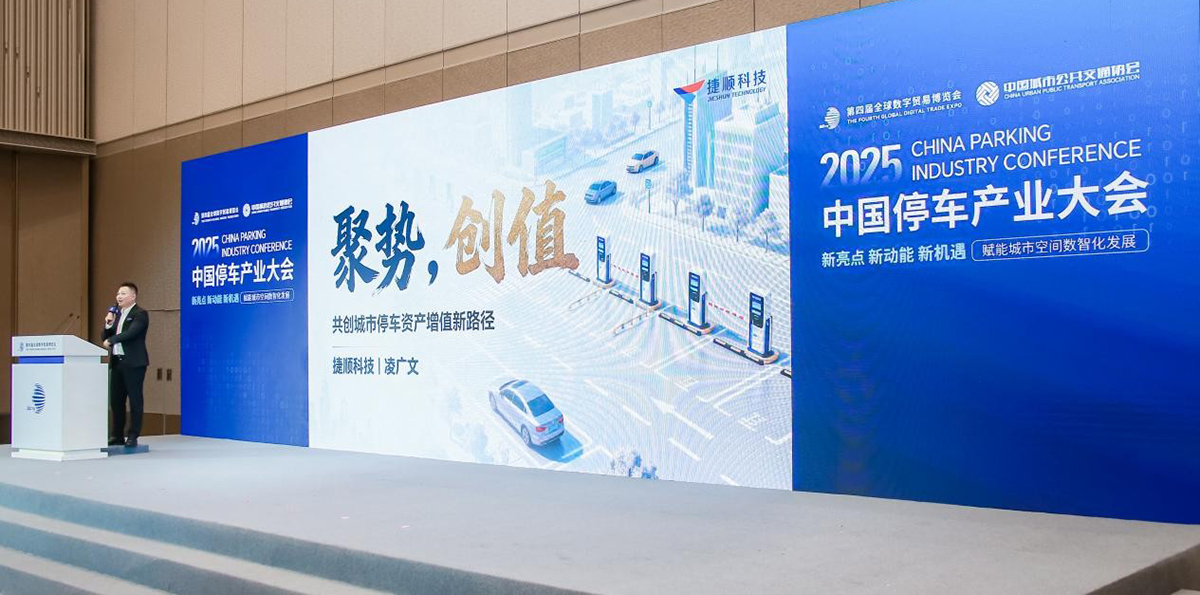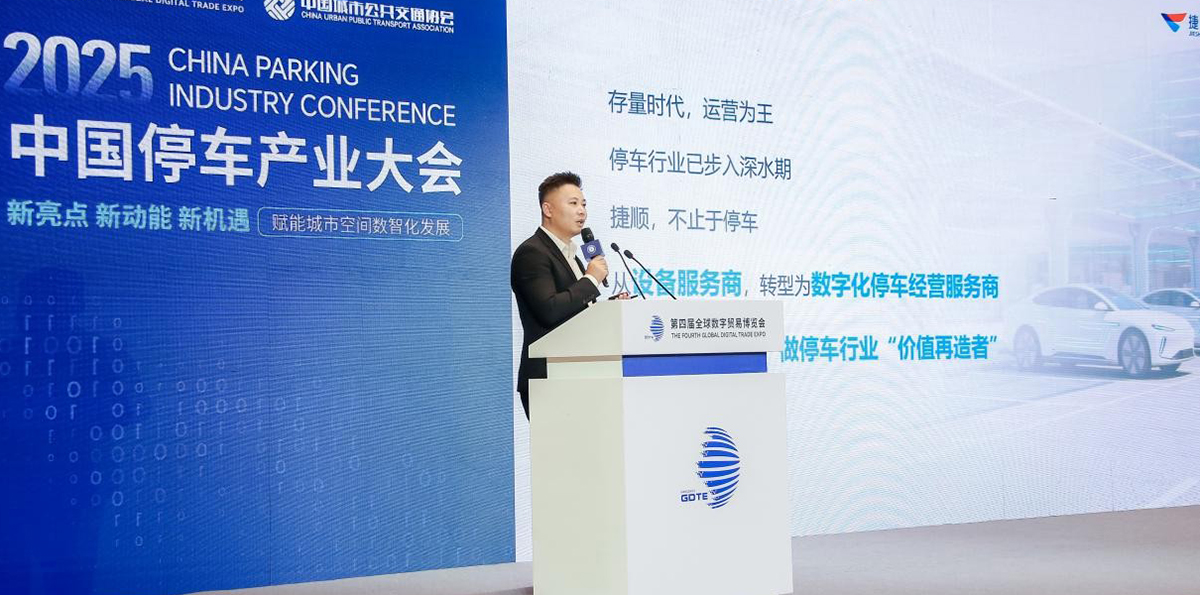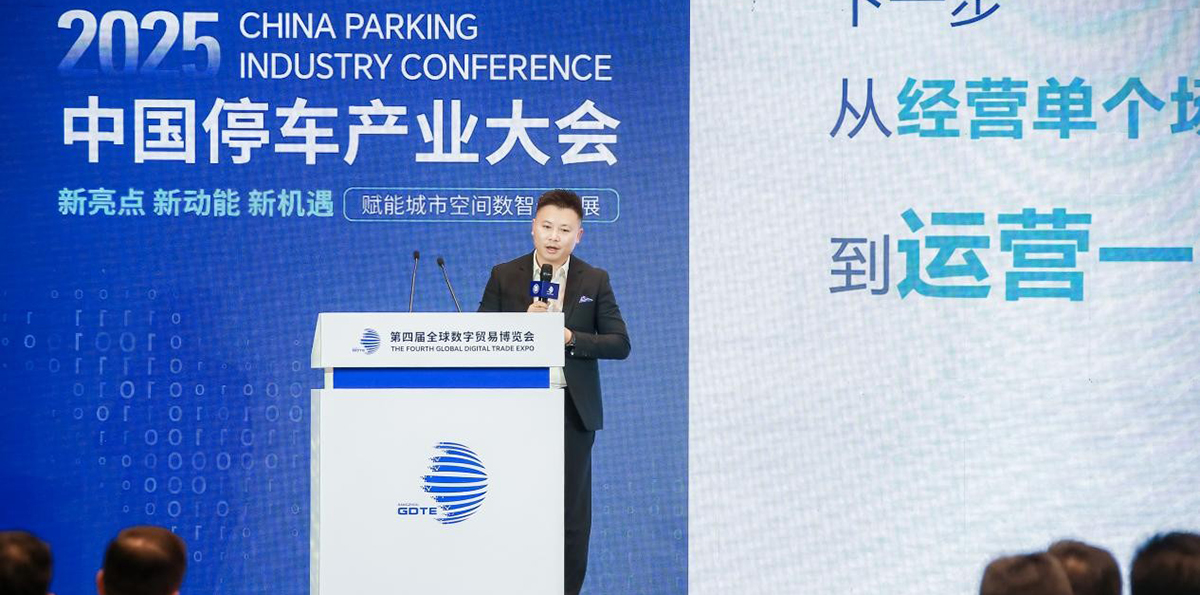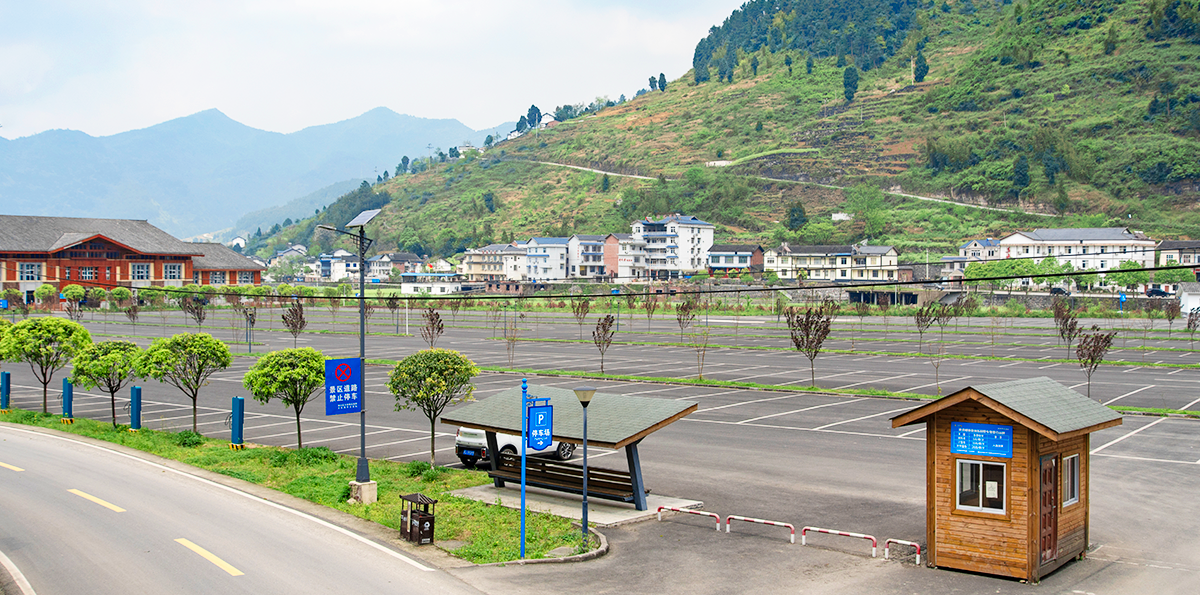About us
Leading in Smart Parking & Access Control
In September 2025, the China Parking Industry Conference was held during the Global Digital Trade Expo in Hangzhou. With the theme “New Highlights, New Momentum, New Opportunities,” the event focused on the digitalization trends shaping urban spatial development. More than 200 participants—including government agencies, enterprises, research institutions, and industry associations—gathered to discuss the future of China’s parking industry.
Ling Guangwen, General Manager of JIESHUN Smart City, delivered a keynote speech titled “Gathering Strength, Creating Value—Forging New Pathways for Urban Parking Assets.” His insights reflected the profound transformation currently underway in the parking sector and showcased JIESHUN’s exploration during the digital transformation era.

33 Years of Dedication: Building Strength Through Focus and Evolution
“A key characteristic of JIESHUN is its long-standing development history,” Ling opened with a hint of humor. Having joined JIESHUN Smart City in 2023, he offered a fresh perspective: founded in 1992 and listed on the A-share market in 2011, JIESHUN has become a long-standing force in the industry.
He attributed the company’s enduring growth to three key elements: focus, accumulation, and adaptability.
• Focus:“For 33 years, JIESHUN has focused on one thing—parking. Only by digging deep into a single field can we achieve today’s results. Internally we say, ‘Turn barriers into benchmarks, and lifting gates into trust.’”
• Accumulation:Over the decades, JIESHUN has connected more than 50,000 parking facilities, manages 30 million parking spaces, and serves 140 million registered users. These long-term achievements have formed a competitive edge unmatched in the industry.
• Embracing Change:“From the mechanical era to smart parking, and now to digital asset operations—our evolution has always been driven by the changing needs of each era.”
These foundations of specialization, experience, and continuous transformation have positioned JIESHUN at the forefront of every major industry shift—laying the groundwork for its current strategic transformation.
A Saturated Hardware Market, and a New Blue Ocean in Parking Assets
For many years, JIESHUN excelled in selling systems and hardware, generating around 2 billion RMB annually. But today, the hardware market is nearing saturation.
Meanwhile, China’s parking fee market has expanded from 350 billion RMB in 2014 to 1.5 trillion RMB today, with over 500 million car owners nationwide and 50 million new car owners added in just three years.
Facing a sluggish equipment market yet enormous potential in parking operations, JIESHUN shifted its strategy: “Over the past three years, we have focused our efforts on understanding user needs,” Ling stated. This shift was backed by substantial investment: over the last three years, JIESHUN invested 2 billion RMB into parking asset operations, delivering an average 33% uplift in asset value—proof of its evolution from a hardware provider to a deep operator of parking assets.

Discovering the ‘Hidden Giant’: Property Management Companies
“The biggest parking companies are actually property management companies,” Ling revealed. Many property firms oversee hundreds of thousands of parking spaces but traditionally treat parking as a service, not an asset.
This insight became a breakthrough for JIESHUN. By studying supply–demand patterns and pricing logic, JIESHUN developed nearly 160 operational strategies to maximize asset efficiency.
The business model also shifted fundamentally. JIESHUN introduced a new partnership model: “Guaranteed Base Return + Revenue Sharing.” This model ensures sustainable win-win cooperation rather than traditional contracting.

From Operating One Facility to Operating an Entire City
JIESHUN’s ambitions extend beyond individual car parks—toward shaping the entire urban parking ecosystem.
The industry faces three major challenges:
1. Fragmented platforms and networks
2. Limited user services
3. Difficulty revitalizing state-owned parking assets
JIESHUN’s response: full data openness. “This year, we have fully opened our platform,” Ling declared. “We now provide data from 140 million users and 50,000 car parks to city platform partners.”
This bold decision stems from a shared belief: platforms must thrive for the industry to thrive. Data openness was only the first step—activation came next. In Shenzhen, JIESHUN succeeded in boosting platform usage through reservation and shared parking models across hospitals, transport hubs, and public parks.
Shared parking is now categorized into multiple levels: Neighborhood-level, street-level, district-level, city-level. For example, in Shenzhen’s Longhua District, nearly 7,000 shared parking spaces were activated, effectively reducing parking pressure.
Returning Value to Users: From B-end Thinking to C-end Experience
For years, most smart parking companies focused on B2B solutions while overlooking end-user service. JIESHUN now emphasizes user value: “A platform becomes active when it provides user benefits.”
With location-based recommendations, users struggling to find parking can receive suggestions for cheaper or available alternatives nearby. JIESHUN has also adopted an Internet-style distribution model to encourage user referrals—helping unify resources under city platforms and form effective business synergies.
Parking + Tourism: A New Cross-Industry Opportunity
Another direction JIESHUN is exploring is the integration of parking and tourism. In one major tourism city in western China, which receives 70 million visitors every year and half of them arrive by car, the need is clear: Travelers urgently want real-time parking availability and service information near scenic areas.
JIESHUN is planning to introduce a “Tourism Parking Privilege Card,” granting visitors three days of parking access while helping cities monetize secondary tourism services through JIESHUN’s 140 million-user base.
A New Track: From Equipment Supplier to City Partner
“The era of simply selling equipment is over,” Ling said candidly. “Most cities have already completed their parking infrastructure.” In response, JIESHUN is fully switching tracks, shifting from a hardware supplier to a city-level parking operations partner.
In the future, JIESHUN will invest capital and capabilities, share risks with city platform operators, and create value collaboratively—earning reasonable profits through deep operations. “Open collaboration, co-creation, deep operations, and value sharing” now define JIESHUN’s new development direction.

Conclusion: Parking as a New Engine for High-Quality Urban Development
“In China’s wave of digital transformation, parking is no longer simply a place to leave a vehicle. It is becoming a vital link in the broader ecosystem of urban services.”
JIESHUN’s journey shows that through openness, deep operations, and shared value, traditional industries can be revitalized and transformed into key drivers of high-quality urban development.